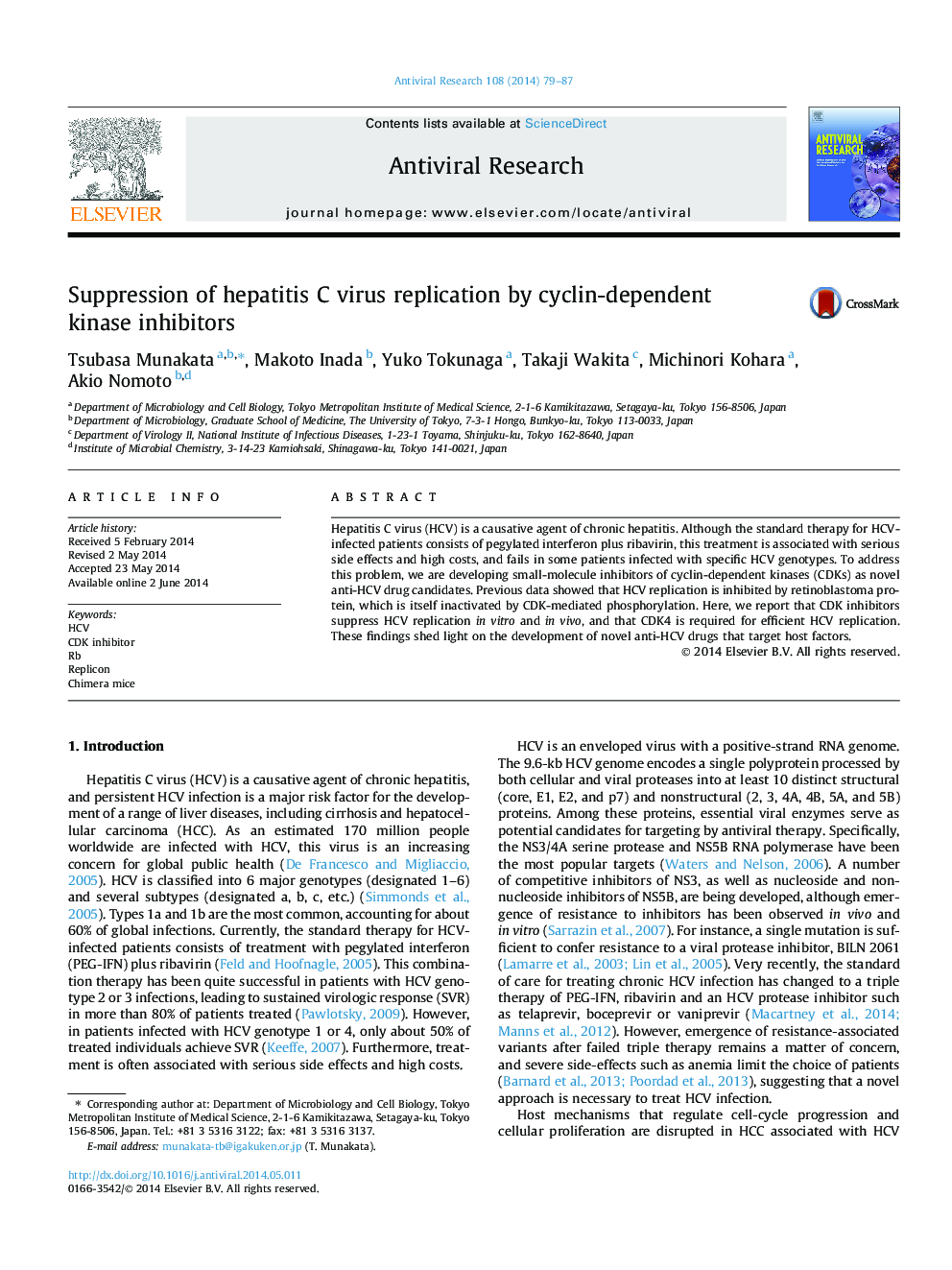| کد مقاله | کد نشریه | سال انتشار | مقاله انگلیسی | نسخه تمام متن |
|---|---|---|---|---|
| 5822257 | 1557835 | 2014 | 9 صفحه PDF | دانلود رایگان |

- CDK inhibitors suppress HCV replication of genotypes 1b and 2a in vitro.
- CDK4 is required for efficient HCV replication in vitro.
- A CDK inhibitor suppresses HCV infection in vivo.
- Combined administration of interferon and CDK inhibitor shows further suppression of HCV infection.
Hepatitis C virus (HCV) is a causative agent of chronic hepatitis. Although the standard therapy for HCV-infected patients consists of pegylated interferon plus ribavirin, this treatment is associated with serious side effects and high costs, and fails in some patients infected with specific HCV genotypes. To address this problem, we are developing small-molecule inhibitors of cyclin-dependent kinases (CDKs) as novel anti-HCV drug candidates. Previous data showed that HCV replication is inhibited by retinoblastoma protein, which is itself inactivated by CDK-mediated phosphorylation. Here, we report that CDK inhibitors suppress HCV replication in vitro and in vivo, and that CDK4 is required for efficient HCV replication. These findings shed light on the development of novel anti-HCV drugs that target host factors.
Journal: Antiviral Research - Volume 108, August 2014, Pages 79-87